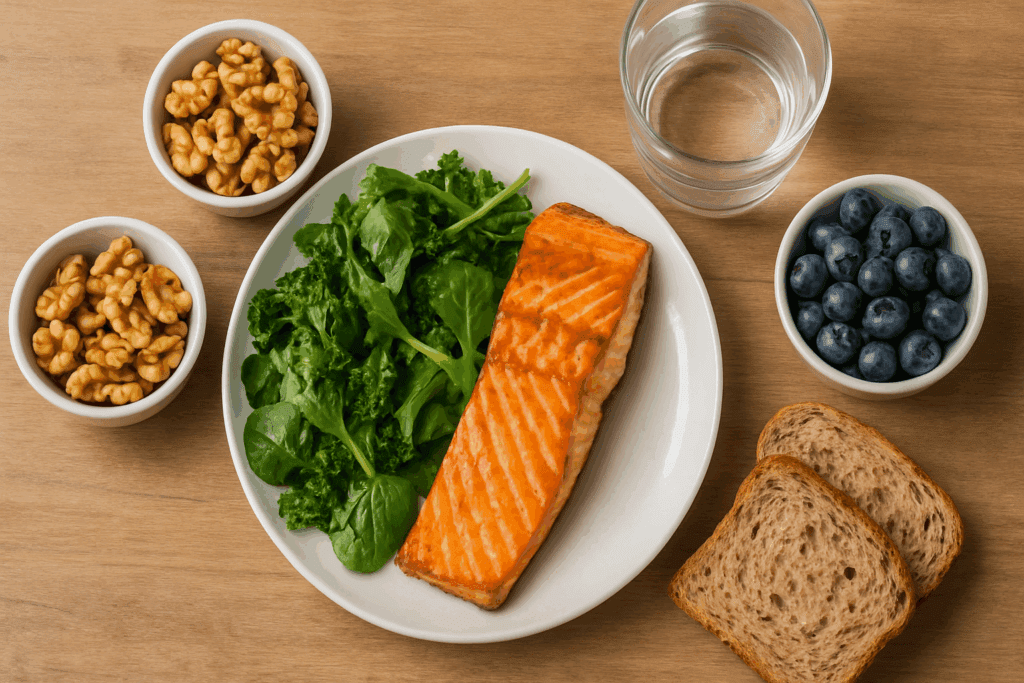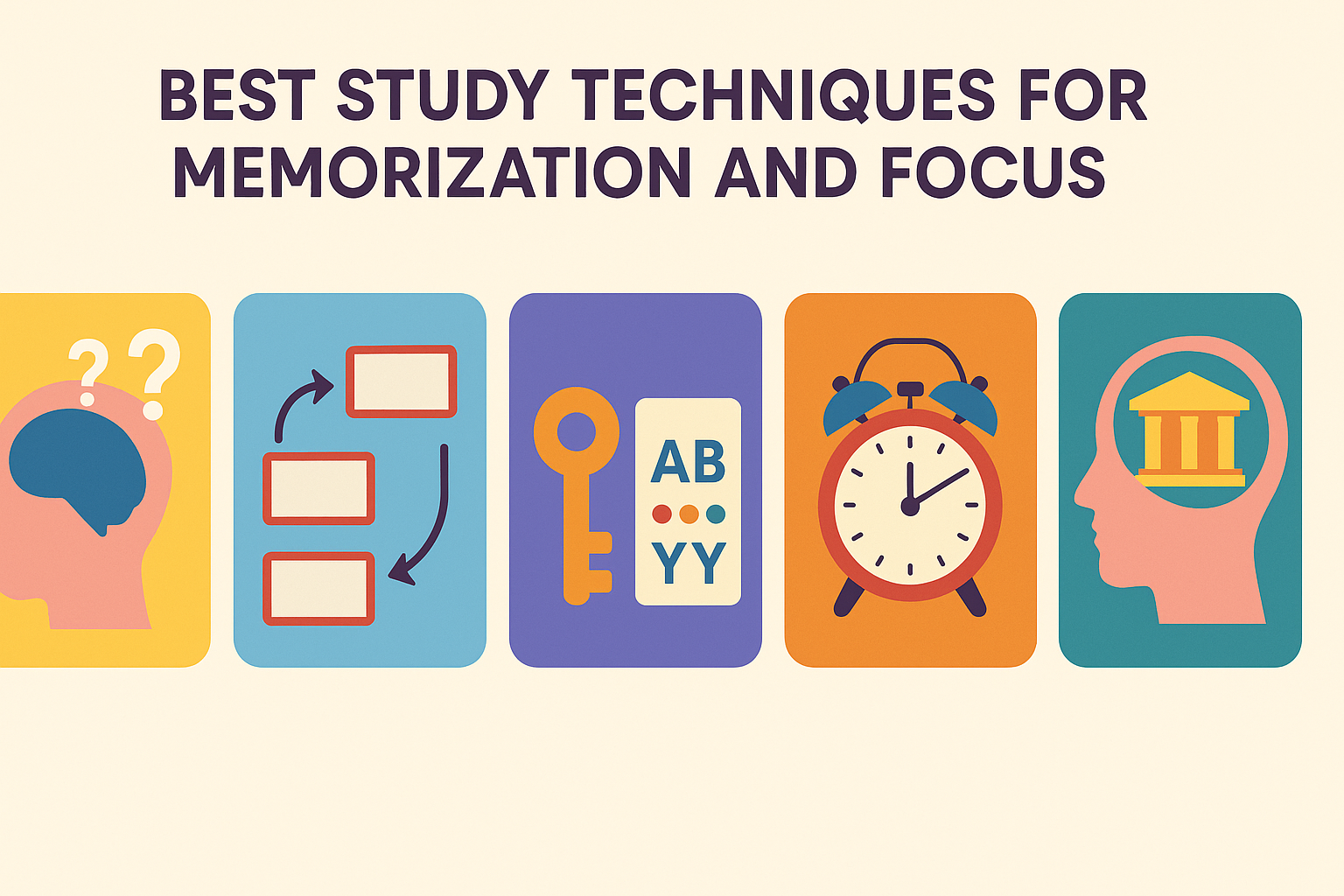Forgetfulness is a universal experience—misplacing keys, forgetting names, or momentarily losing your train of thought. Yet, when these moments become frequent or troubling, many begin to question their implications. Could these lapses signal something more significant about brain health? Understanding the meaning of forgetfulness is not just about managing the inconvenience—it’s a window into the deeper workings of our cognitive function, memory processes, and overall mental sharpness.
You may also like: Best Herb for ADHD Support: How Natural Remedies and Herbs for ADHD Women May Help Boost Focus and Calm
The concern is especially relevant as we strive to stay mentally sharp into our 80s and beyond. In a world filled with fast-paced information, increasing screen time, and heightened stress, forgetfulness can appear more often. But what does it really mean? Is forgetfulness merely a sign of aging or is it reflective of deeper neurological shifts? By examining the underlying factors, exploring how to sharpen your brain naturally, and investigating natural solutions to enhance memory and cognitive clarity, we can address these questions with greater clarity.
To explore this thoroughly, we’ll look at the physiological roots of memory, evaluate how symptoms of forgetfulness are categorized, and identify natural brain-boosting foods and ingredients that may help support better mental performance. Along the way, we’ll explore practical ways to sharpen your mind, incorporate brain exercises to improve memory and concentration, and introduce evidence-based solutions that align with cognitive longevity.

Understanding the Meaning of Forgetfulness
To define forgetfulness is to understand the many ways the brain stores, recalls, and processes information. Forgetfulness is commonly described as the temporary inability to retrieve stored memories or form new ones. It becomes clinically significant when it affects daily functioning or is indicative of memory-related diseases. Yet, not all memory lapses signal decline. Many instances of forgetfulness are benign, especially when related to distractions, fatigue, or momentary overload of information.
At a neurological level, memory is managed by intricate networks involving the hippocampus, prefrontal cortex, and other interconnected brain structures. Damage, inflammation, or inefficiencies in these regions—whether due to aging, trauma, or lack of essential nutrients—can interrupt memory encoding and recall. In essence, the meaning of forgetfulness is best understood not as a failure of intellect but as a flag signaling the need to assess and optimize brain health.
Using a forgetfulness symptom checker may help identify whether the episodes are mild and situational or indicative of underlying cognitive conditions such as mild cognitive impairment (MCI) or early dementia. However, symptoms alone cannot confirm a diagnosis—they should prompt a broader assessment, including nutritional, emotional, and neurological factors.

Is Being a Forgetful Person Normal?
The label of a “forgetful person” is often casually applied, but it’s essential to recognize the difference between occasional forgetfulness and persistent memory concerns. Forgetting an appointment because of a packed schedule differs greatly from regularly forgetting conversations, directions, or common words. A forgetful person might simply be overloaded with stimuli and multitasking excessively, reducing the brain’s ability to encode information deeply.
In such cases, techniques like mindfulness, limiting distractions, and improving sleep hygiene can significantly enhance retention. Research suggests that consistent sleep deprivation—even modest—reduces memory consolidation by disrupting REM cycles, where long-term memory storage occurs. Therefore, rather than stigmatizing forgetfulness, we should examine it as a potential indicator of how well (or poorly) the brain is being supported.
Being forgetful can also be a cue to evaluate lifestyle habits. Are you getting sufficient omega-3 fatty acids, B vitamins, and antioxidants? Are stress and anxiety levels undermining your focus and retention? If so, this may be the time to look at strategies that both define forgetfulness and offer routes for remedy.

How to Stay Mentally Sharp into Your 80s and Beyond
One of the most vital long-term goals for cognitive wellness is learning how to stay mentally sharp into your 80s and beyond. This does not solely depend on genetics. Lifestyle choices, mental stimulation, and nutrition play equally crucial roles. Studies suggest that engaging the brain through new learning—languages, musical instruments, strategic games—can create new neural connections, a process known as neuroplasticity.
Brain gym activities for adults, such as memory matching, sequencing tasks, and strategic games like chess or sudoku, encourage both hemispheres of the brain to work together. This not only improves memory retention but also strengthens decision-making skills. Pairing these with movement—such as coordination-based dance or tai chi—provides added benefits by improving circulation to the brain.
Additionally, dietary patterns like the MIND diet (a hybrid of the Mediterranean and DASH diets) show promise in slowing cognitive aging. This approach emphasizes foods that are rich in antioxidants, healthy fats, and phytochemicals. Making simple dietary shifts, alongside mental exercises and social engagement, creates a comprehensive approach to staying sharp as you age.
Exploring Brain Exercises to Improve Memory and Concentration
Cognitive exercises aren’t just for children. Adults benefit greatly from daily brain challenges. Among the top recommendations are brain boosting games and mental tasks that stimulate working memory and attention control. Research confirms that memory-enhancing tasks improve performance in both the short- and long-term.
Three brain exercises to boost memory that have shown particular success include:
- Visual-spatial puzzles like tangrams or 3D model assembly, which enhance working memory.
- Backward counting or serial subtraction tasks, which strengthen focus.
- Word association chains, which challenge long-term recall.
To sharpen your brain, these activities must be consistent. Just as muscles require frequent training, so does the brain. Integrating daily sessions of 15–30 minutes can yield measurable gains in concentration and memory span, especially when paired with movement and relaxation techniques.

The Role of Natural Ingredients in Supporting Brain Health
Natural ingredients have long been used in traditional medicine to enhance mental clarity and slow age-related decline. Contemporary research has validated many of these substances, highlighting their neuroprotective and antioxidant properties. Among the most widely studied are Ginkgo biloba, Bacopa monnieri, Lion’s Mane mushroom, and Rhodiola rosea.
Ginkgo biloba, in particular, shows promise for improving blood flow to the brain and enhancing short-term recall. Bacopa monnieri is associated with improvements in processing speed and verbal memory. Lion’s Mane mushroom stimulates nerve growth factor (NGF), potentially aiding in the repair of damaged neurons, while Rhodiola rosea acts as an adaptogen that may mitigate fatigue-induced forgetfulness.
The meaning of forgetfulness may therefore be interpreted as a signal of deficiency—whether in nutrients, neurotransmitters, or brain oxygenation. Including these ingredients in supplement form or through diet (where applicable) provides a holistic way to improve memory and focus.
Best Study Techniques for Memorization and Focus
For students or lifelong learners, memory retention is paramount. Understanding how to memorize things fast for a test—without cramming—requires using good study techniques for memorization. The most effective methods go beyond repetition and involve multisensory engagement, strategic retrieval, and spaced repetition.
Chunking information into groups, creating mnemonic devices, and using memory palaces are all examples of advanced memory methods techniques. One especially effective approach is the Pomodoro technique, which includes focused study sessions followed by short breaks. This aligns with research showing that strategic intervals improve long-term memory encoding.
To memorise effectively, timing also matters. Some individuals find success when studying material before sleep, allowing the brain to consolidate memories overnight. Understanding how to memorise something overnight involves aligning content review with the brain’s natural memory formation cycles. Whether you’re trying to remember something fast or learning complex material, the integration of structure and rest is critical.
Food and Nutrition: What to Eat for Better Brain Health
When considering how to keep your mind sharp as you age, diet is non-negotiable. The brain thrives on certain nutrients and can decline rapidly when they are deficient. Omega-3 fatty acids, particularly DHA, are essential for neuronal membrane health. Antioxidants such as vitamin E, flavonoids, and carotenoids fight oxidative stress that contributes to cognitive aging.
Top foods that help the nervous system and cognitive clarity include:
- Fatty fish like salmon or sardines, rich in omega-3s
- Leafy greens such as kale, spinach, and collards for their folate and vitamin K content
- Berries, particularly blueberries, which are high in anthocyanins and linked to delayed brain aging
Whole grains, nuts, and seeds contribute magnesium, zinc, and vitamin B6—critical cofactors in neurotransmitter function. Together, these foods form a nutritional foundation that supports memory, learning, and concentration, helping individuals stay sharp into their later years.
Practical Memorization Tips for Studying and Exams
When exams loom, the pressure to remember information intensifies. Fortunately, memory methods for studying can be both effective and accessible. One critical technique is active recall—quizzing yourself on material rather than passively re-reading it. This strengthens neural pathways and helps cement information.
Additionally, using retrieval practice in the form of mock tests or flashcards can simulate exam conditions. Spaced repetition apps like Anki or Quizlet can help you remember things while studying and reduce cognitive overload. If time is limited, knowing how to memorize something in 10 minutes or how to learn text fast can be a game-changer.
During intense study periods, hydration and sleep are often overlooked. Yet, even mild dehydration impairs short-term memory and attention. Adequate hydration and regular rest breaks optimize cognitive performance and prevent the mental fatigue that often leads to forgetfulness during exams.
Addressing the Root Causes of Forgetfulness
Forgetfulness isn’t just about what you’re not remembering—it’s about why. Understanding the meaning of forgetfulness requires a deeper dive into contributing factors. Hormonal changes, particularly in midlife, can affect memory. Elevated cortisol from chronic stress can shrink the hippocampus, the brain’s memory center.
Inflammation is another major culprit. Chronic inflammation disrupts communication between neurons and impairs synaptic plasticity. This is why anti-inflammatory diets and adaptogenic herbs are becoming central in cognitive support protocols. Beyond food, practices like meditation, gratitude journaling, and controlled breathing reduce stress biomarkers and support memory retention.
Being labeled a forgetful person may mean more than distraction. It could reflect unmet cognitive needs—needs that, when addressed, can significantly enhance mental clarity. Checking in with a forgetfulness symptom checker, modifying lifestyle factors, and integrating targeted nutrition are all proactive steps.

Frequently Asked Questions (FAQ): Understanding Forgetfulness and Brain Health
What are some overlooked causes of forgetfulness that aren’t linked to aging?
While aging is a well-known contributor to forgetfulness, there are lesser-known but impactful factors that can make someone feel like a forgetful person. Nutrient deficiencies—especially in B12, magnesium, and omega-3 fatty acids—can impair memory and cognition. Chronic dehydration is another often-ignored contributor; even slight fluid imbalances can reduce concentration and recall. Hormonal imbalances, particularly thyroid dysfunction or perimenopausal changes, may also mimic cognitive decline and complicate efforts to define forgetfulness accurately. These nuanced causes highlight the importance of using a forgetfulness symptom checker to help identify patterns that may not be age-related.
How does stress impact forgetfulness, and can it be reversed?
Stress significantly alters brain chemistry, particularly in the hippocampus—the memory hub of the brain. High levels of cortisol can interfere with both memory formation and recall, causing even high-functioning individuals to appear as a forgetful person under pressure. Fortunately, many stress-induced memory issues are reversible through mindfulness practices, adaptogenic herbs, and stress reduction techniques. Chronic stress may alter one’s baseline cognitive performance, which is why identifying early signs through a forgetfulness symptom checker can be crucial. Addressing the root cause, rather than trying to simply define forgetfulness through behavior alone, offers a more sustainable recovery strategy.
How can forgetfulness influence self-perception and social confidence?
Frequent forgetfulness can erode self-esteem, especially when others begin to label someone a forgetful person. Over time, this may cause individuals to withdraw from social and intellectual activities out of fear of embarrassment or failure. The meaning of forgetfulness in this context goes beyond memory—it becomes a question of identity and emotional well-being. Utilizing a forgetfulness symptom checker can help individuals recognize that their experiences may have medical or nutritional explanations rather than being personal failings. A compassionate, informed approach can empower individuals to seek solutions without shame or stigma.
Are there differences in how men and women experience forgetfulness?
Emerging research suggests that gender may influence both the experience and the reporting of forgetfulness. Women, particularly during perimenopause and menopause, often report memory issues due to fluctuating estrogen levels that affect neurotransmitter balance. Meanwhile, men may be less likely to acknowledge or report forgetfulness due to social conditioning, which can delay diagnosis. Recognizing the meaning of forgetfulness in gender-specific contexts helps healthcare providers tailor strategies more effectively. For both genders, a forgetfulness symptom checker can provide a neutral tool to assess symptoms without subjective bias.
How does technology affect our ability to remember?
While digital tools enhance convenience, they may diminish our innate memory capabilities. Constant reliance on GPS, calendars, and search engines means we outsource cognitive functions once performed by our brains. This external dependency can rewire the brain’s prioritization of short-term versus long-term memory, making it easier to feel like a forgetful person. Understanding the meaning of forgetfulness now includes evaluating how much we trust our devices over our natural recall. To counter this, experts recommend “digital fasting” or intentionally memorizing information to keep memory muscles engaged. A forgetfulness symptom checker may not assess digital dependency directly, but it can help highlight patterns of underuse in memory-dependent activities.
Can dietary changes really reverse forgetfulness?
Yes, in many cases, dietary interventions have a measurable impact on cognitive function. A diet rich in polyphenols, omega-3s, and B-complex vitamins can reduce oxidative stress and inflammation in the brain—two key drivers of memory decline. For those experiencing early symptoms, this may redefine what it means to be a forgetful person: not as someone in decline, but someone out of nutritional balance. As science continues to explore the gut-brain connection, probiotics and fermented foods are also gaining attention as potential cognitive enhancers. While diet alone won’t resolve every issue, it is a powerful, accessible way to support brain health alongside insights from a forgetfulness symptom checker.
How do trauma and PTSD relate to forgetfulness?
Trauma significantly alters brain function, particularly in areas related to memory consolidation. People with PTSD often experience fragmentation of memory or difficulty recalling specific events, complicating efforts to define forgetfulness in these cases. Rather than general cognitive decline, this forgetfulness often reflects the brain’s protective mechanisms, such as dissociation. For trauma survivors, being labeled a forgetful person can feel invalidating and dismissive. Tools like a forgetfulness symptom checker should ideally be trauma-informed, helping to differentiate between memory disruption due to stress and more pervasive cognitive concerns.
Is forgetfulness a reliable indicator of future cognitive decline?
Not always. While forgetfulness can be an early warning sign, it is not inherently predictive of dementia or other long-term impairments. The meaning of forgetfulness depends on multiple variables, including frequency, severity, and the context in which it occurs. A forgetfulness symptom checker can help identify red flags but should be followed by professional evaluation for accurate diagnosis. Cognitive decline involves patterns that evolve over time, whereas situational forgetfulness may be temporary and reversible.
Can lifestyle choices in your 30s and 40s prevent forgetfulness later?
Absolutely. Brain plasticity—the brain’s ability to adapt and grow—persists well into later life, meaning that healthy habits formed early can build cognitive reserves. Regular exercise, lifelong learning, and quality sleep reduce the risk of becoming a forgetful person as you age. Early intervention allows you to define forgetfulness in functional rather than pathological terms. For those already experiencing mild lapses, a forgetfulness symptom checker may uncover reversible lifestyle factors, like poor diet or unmanaged stress. Prevention is most effective when begun early, reinforcing that forgetfulness is not inevitable.
What are the ethical considerations in diagnosing and labeling forgetfulness?
Labeling someone as a forgetful person carries psychological and social implications. Mislabeling can affect how others treat the individual, leading to potential discrimination in the workplace or social alienation. It is essential to define forgetfulness accurately, using both subjective reporting and objective tools like a forgetfulness symptom checker. Ethical care involves informed consent, cultural sensitivity, and the avoidance of assumptions about age or ability. Healthcare professionals must consider context, avoid premature conclusions, and prioritize empowering rather than pathologizing patients.

Conclusion: Redefining Forgetfulness as a Call for Brain Support
Forgetfulness does not have to be feared or stigmatized. Rather, it should be embraced as a signal—a nudge prompting us to explore how to sharpen your brain and support cognitive vitality. When we define forgetfulness accurately and compassionately, we see it as a form of communication from the brain, indicating that rest, nutrients, or lifestyle shifts are needed.
Whether you’re trying to memorize things fast for a test or stay mentally sharp into your 80s and beyond, integrating natural brain-boosting foods, evidence-based herbs, and consistent mental stimulation can lead to lasting improvements. From daily brain gym activities for adults to memory methods for studying and mindful eating, the path to cognitive clarity is multifaceted, empowering, and within reach.
For anyone seeking to avoid the pitfalls of being a forgetful person, the journey begins with awareness and is sustained by actionable changes. With the right approach, it is possible not only to slow forgetfulness but to build a sharper, more resilient mind at every age.


